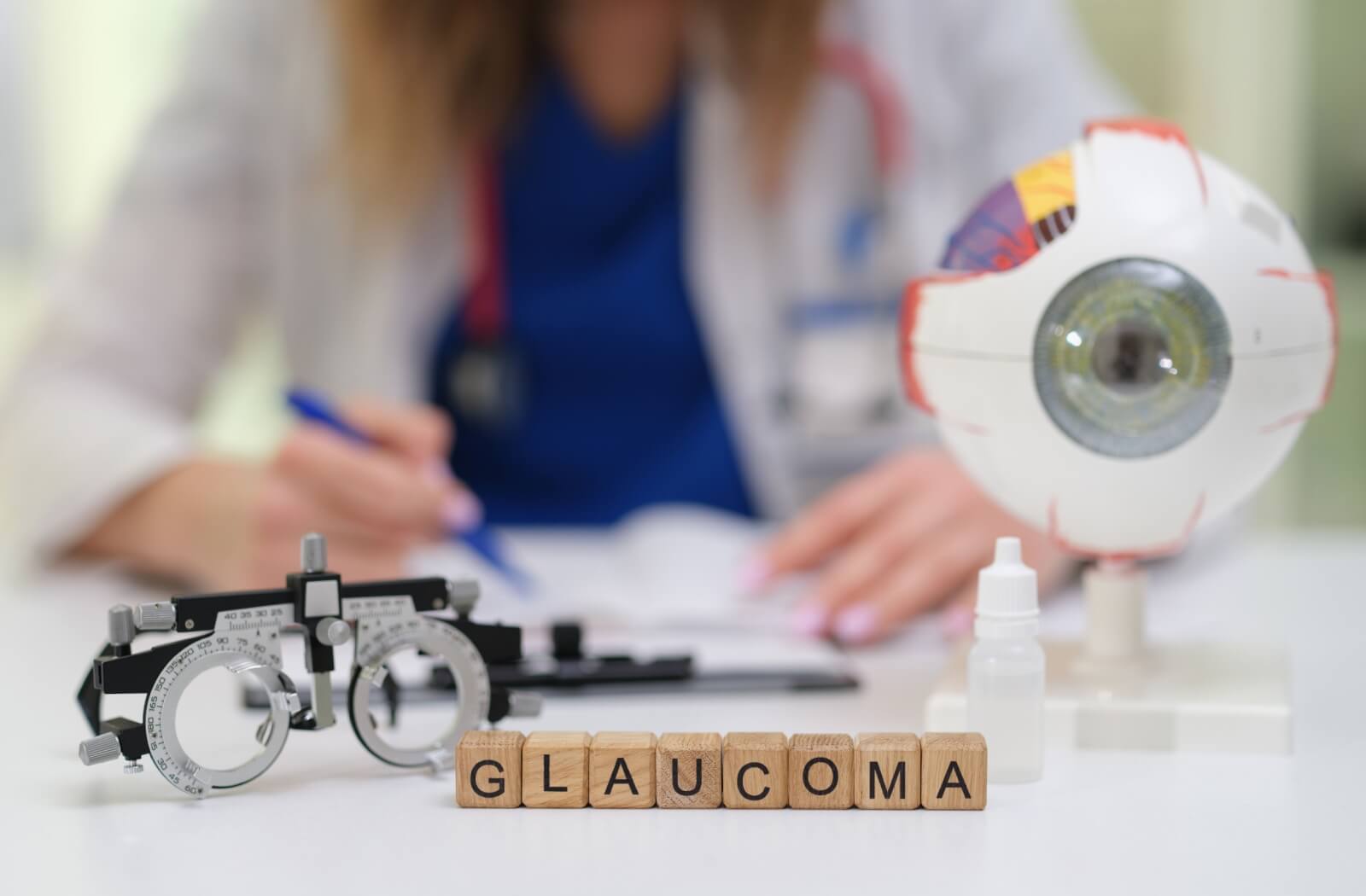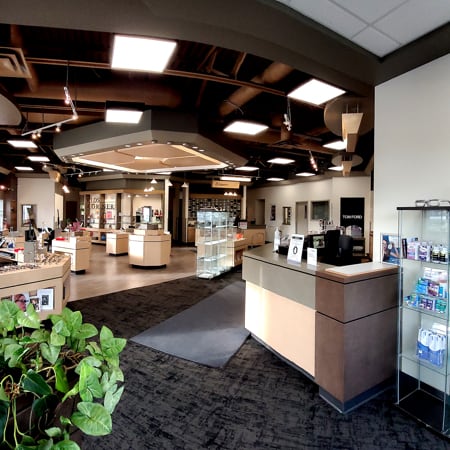Preventing Damage From Eye Diseases
At Total Focus Optometry, helping our patients maintain strong eye health is what’s most important to us. Many eye diseases can cause partial vision loss or even blindness, so we spend time identifying any issues every time you visit for an eye exam.
Identifying eye diseases on your own can be difficult. As many eye diseases don’t show any early symptoms or warning signs, patients may not know they’ve developed eye diseases until damage has already been caused. Identify eye diseases early with regular eye exams at Total Focus Optometry.

Dangers of Eye Diseases
The eye is extremely delicate. Even some of the smallest changes can cause vision loss. Certain conditions, such as diabetes, can increase the chance of these changes occurring in the eye, risking damage.
Although visiting for regular eye exams is the best way to ensure your eyes are healthy, it’s important to be aware of potential warning signs of eye diseases. Please book an appointment immediately if you’re experiencing the following:
- Change in iris colour
- Crossed eyes
- Dark spots in the centre of your vision
- Double vision
- Dry eyes
- Cloudy vision
- Eye pain
- Floaters or flashers
- Halos (circle around lights)
- Loss of vision
- Light sensitivity


Common Eye Diseases
Even though eye diseases can be hard to identify outside of an eye exam, it’s important to be aware of the common eye diseases and how they can impact your eyes and vision. If you’re at risk of developing any of the following eye diseases, please contact us.
Glaucoma
Glaucoma is one of the leading causes of blindness in patients over 60 years of age. Glaucoma is a group of diseases that targets the optic nerve, the part of the eye that’s responsible for transmitting information to the brain.
One of the major concerns of glaucoma is its lack of early symptoms and warning signs. The group of diseases can be difficult for patients to identify on their own. During an eye exam, we’ll always check patients for glaucoma to provide the best defense against the disease.
Cataracts
Cataracts are the clouding of the eye’s natural lens. This clouded lens can make it hard for patients to see objects clearly and colours brightly. Cataracts are a natural part of the eye’s aging process. However, their progression can be sped up by factors such as smoking or diabetes.
Patients can be given a higher prescription to help with clearer vision. To be properly treated, cataracts need to be removed surgically.
Age-Related Macular Degeneration
Age-related macular degeneration (AMD) is the leading cause of blindness in adults over 55 years of age in North America. The macula (the central part of the retina) is responsible for your central vision, allowing you to focus on objects clearly.
AMD often first starts as dry AMD. This disease is caused by drusen deposits in the macula. As these deposits build up, they can create blind spots and eventually cause blindness.
If dry AMD is not managed, it can develop into wet AMD. Wet AMD occurs when blood vessels break under the macula. The liquid from these blood vessels has a higher chance of causing vision loss and blindness.

Identify Eye Diseases Early
To help protect your eyes from potential damage, visit for regular eye exams. If we notice anything during your exam, we’ll work with you to create a management plan.

Our Location
Wanna see what we’re all about?
From our practice’s architecturally stunning office to our warm and welcoming staff, visiting Total Focus Optometry is always an enjoyable experience.
Our team can’t wait to meet new patients and see friendly returning faces!
Our Address
- 3352 Gateway Blvd. NW
- Edmonton, AB T6J 6V1
Contact Information
- Phone: 780-988-3937
- Fax: 780-988-5809
- Email: [email protected]
Hours of Operation
- Monday: 9:00 AM – 6:00 PM
- Tuesday: 9:00 AM – 8:30 PM
- Wednesday: 9:00 AM – 6:00 PM
- Thursday: 9:00 AM – 8:30 PM
- Friday: 9:00 AM – 6:00 PM
- Saturday: 9:00 AM – 4:00 PM
- Sunday: Closed
Our Brands





Our Google Reviews
Join Our Newsletter

Our Blog
How Common Is Age Related Macular Degeneration in Canada?
AMDEye CareEye ConditionsWhile statistics vary, AMD is a leading cause of vision changes among older adults in Canada. […]
What Is Usually the First Sign of Glaucoma?
Eye CareEye ConditionsEye HealthFor the most common type of glaucoma, there is often no first sign at all, as it usually develops slowly over time without any pain or obvious symptoms. […]
Eyeglass Fashion Trends in 2026
GlassesThis year’s eyewear is all about personal expression, so you can find eyeglass frames that feel just right for you. […]
How Common Is Age Related Macular Degeneration in Canada?

While statistics vary, AMD is a leading cause of vision changes among older adults in Canada. […]
What Is Usually the First Sign of Glaucoma?

For the most common type of glaucoma, there is often no first sign at all, as it usually develops slowly over time without any pain or obvious symptoms. […]
Eyeglass Fashion Trends in 2026

This year’s eyewear is all about personal expression, so you can find eyeglass frames that feel just right for you. […]












